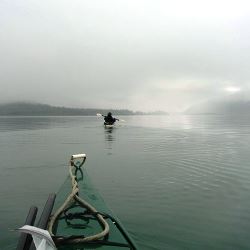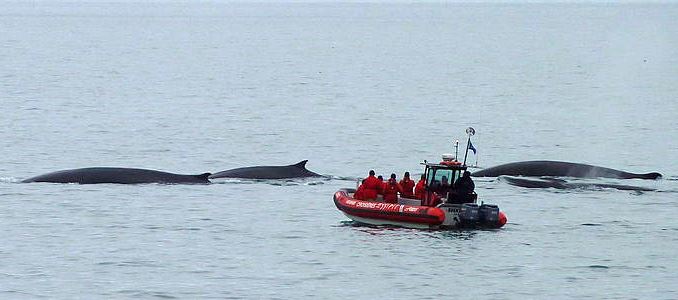What do you want your future to be? Analyses to understand societal preferences for different ecosystem states.
Big Picture
We define ecosystem management targets as a desired ecosystem state; consequently, the process of deciding what is desirable must comprise not just ecological understanding, but also societal values. This research will define the relationship between social values and ecosystem state. In other words, we will investigate social thresholds or tipping points related to ecosystem status. When combined with the analyses of ecological tipping points, this work can be used to define management targets in a manner that accounts for both ecological relationships and societal preferences.
This work is being carried out in Haida Gwaii, BC, where we are examining tipping points in a diversity of social and ecological components of the ecosystem that are all connected to herring. We will work to understand people’s preferences for different states of the ecosystem that result from different management decisions. Such decisions have implications for fisheries productivity, prey availability for seabirds and marine mammals, and resiliency of coastal communities.
Why we are doing it
 How to set management targets remains a vexing problem. Because targets are an expression of the desired state of the ecosystem, any consideration of targets must incorporate not just ecological understanding of tipping points but also societal values. In Haida Gwaii, a complex social fabric made up of Haida and non-Haida perspectives makes this challenge particularly important.
How to set management targets remains a vexing problem. Because targets are an expression of the desired state of the ecosystem, any consideration of targets must incorporate not just ecological understanding of tipping points but also societal values. In Haida Gwaii, a complex social fabric made up of Haida and non-Haida perspectives makes this challenge particularly important.How we are doing it
We will:
- Collect and organize data about stakeholder values
- Describe social preferences by means of social norm surveys
- Conduct surveys to determine the acceptability and desirability of ecosystem states using a scenario framework that incorporates inherent trade-offs among ecosystem goals.
detail from argillite carving by Haida carver, John Cross, Seattle Art Museum
Outcomes
Short- and long-term outcomes related to environmental stewardship and ecosystem-based management objectives are expected from this project. Short-term outcomes of the proposed work include 1) the development of a collaborative research program among ecologists, social scientists, and managers across multiple institutions; 2) improved stakeholder participation in scientific research that supports management; and 3) a better understanding of the relationships among fisheries, conservation, land-use and other ocean uses. Anticipated intermediate- and long-term outcomes are development of a management tool for setting scientifically defensible and socially feasible ecosystem targets, improved environmental stewardship by the public, and implementation of ecosystem-based management that achieves social and environmental goals for ecosystem health.
Lead
Phil Levin
Anticipated Completion
May 2016
Learn more about our other Research Activities with the Ocean Tipping Points project.


